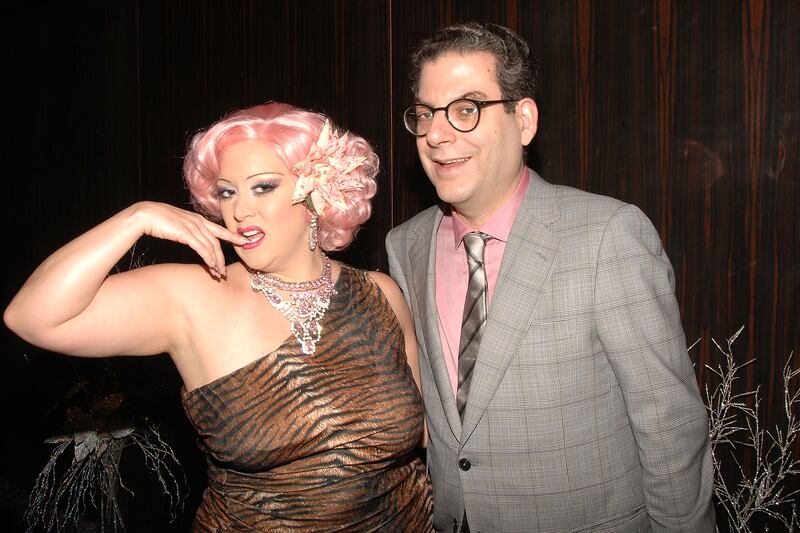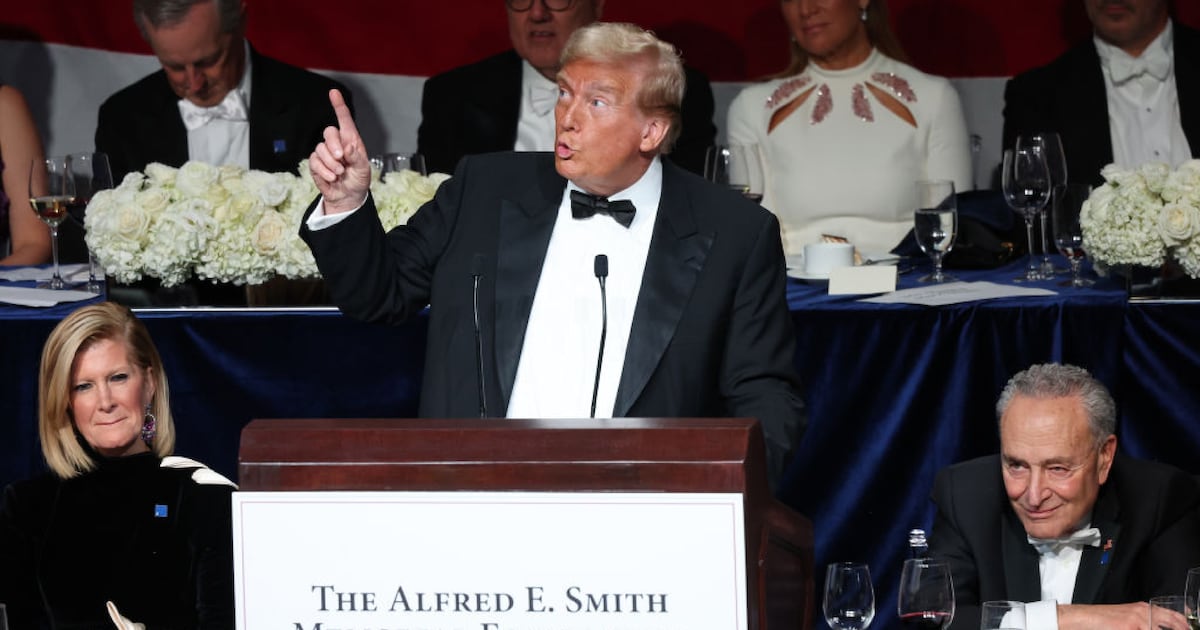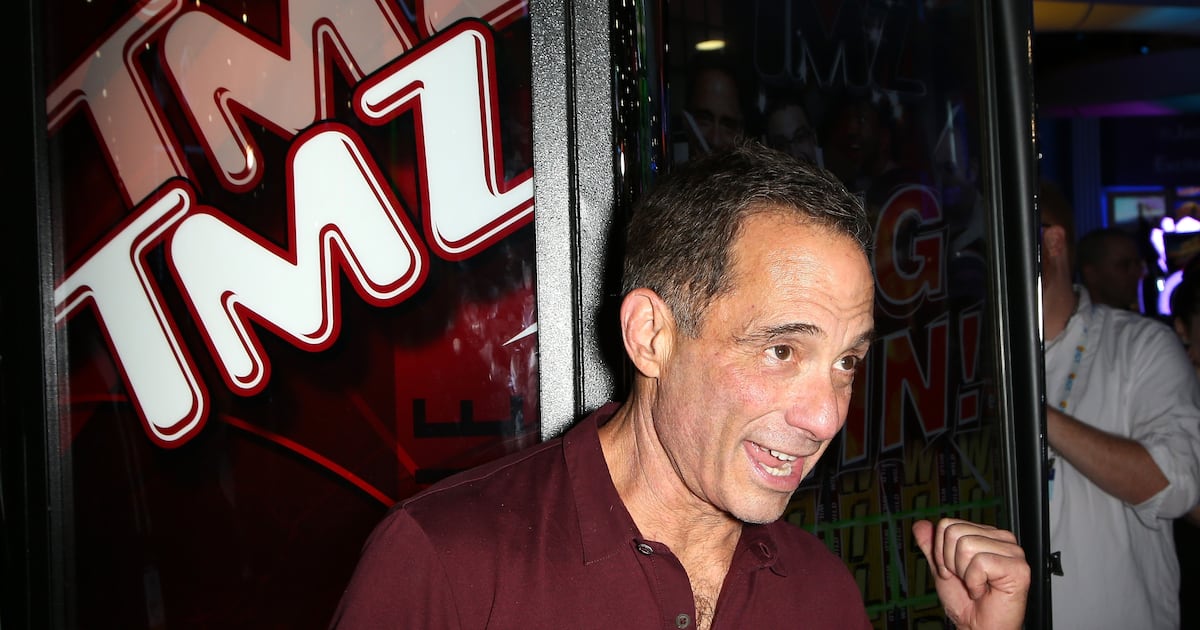The news Friday that the much-diminished Village Voice fired three of the last remaining writers on staff before the New Times’ hostile takeover in 2005, set the media world on fire. It was bad enough that veterans, theatre critic Michael Feingold and food critic Robert Sietsema were both axed. But it was the news that longtime gossip columnist Michael Musto—who has been writing a column since 1984—was laid off that was the biggest shock.

The New Yorker’s Philip Gourevitch wrote on Twitter: “The @villagevoice firing @mikeymusto amounts to @villagevoice firing itself: auto-da-fé.”
Vince Aletti, who now covers photography for the New Yorker, was Musto’s editor from the eighties until Aletti left the paper in 2005, said: “After they systematically got rid of the famous critics, Musto was really one of the last people in the sense of the old style Voice, in the sense of the writer’s paper, that people related to.”
ADVERTISEMENT
To Aletti and others, Musto’s firing made no sense: “It seems to be under this last regime, he’s been given more attention than he had before. They used his picture a lot, he was on the cover, I swear constantly. It just seems like they are giving up.”
Like Gourevitch, for many people Musto was the Village Voice (full disclosure, I worked with him at the Village Voice for eight years). As gossip blogger, Perez Hilton, wrote in an email: “He and the Voice were synonymous. He was the only reason I used to pick it up when I lived in New York City.”
(When reached for comment, Musto said only: “The response has been tremendous and very moving to me.”)
Musto’s contemporaries and former colleagues from the Voice shared with the Daily Beast why Michael Musto mattered then and still does now.
1. His column “La Dolce Musto” was a chronicle of New York’s lifeblood: artists, musicians, DJs, drag queens, weirdos, freaks and geeks.
If you were reading Michael Musto in the eighties you would be reading about Basquiat, Madonna, Keith Haring, Kenny Scharf, Andy Warhol, Studio 54, Lady Bunny, and Susanne Bartsch. You would be reading about art gallery openings, as well as the nightclubs that later made history—clubs like the Palladium and the Limelight. You’d be reading about artists that left the East Village and later made it big. Musto covered the scene at the tiny Pyramid club on Avenue A, where RuPaul, Debbie Harry and Madonna performed and hung out. He not only chronicled Warhol, but was a contemporary. (There is a famous story about Musto at Warhol’s funeral). He gave equal lip service to the multitude of talented New York drag queens—Lady Bunny, Lypsinka, and Hattie Hathaway—as he did celebrities.
David Hershkovits, the co-founder of Paper magazine, was Musto’s editor at the SoHo News where Musto wrote before landing at the Voice, said: “Michael’s idiosyncratic observations coupled with his first rate reporting and quick wit make him a singular talent who is able to bridge the worlds of New York nightlife—gay, straight and whatever—and make it meaningful to both insiders and outsiders.”
Joe Levy, now the Editor of Billboard, worked at the Village Voice as the music editor from 1989 to 1994. Levy wrote in an email: “Musto carried out the Voice mission: be funny, be smart, be first, and don't let people tell you that the world you love isn't serious just because they don't take it seriously. No one covered nightlife better, which means no one covered life in New York better."
2. He has been a huge influence on other gay and gossip writers.
Without Michael Musto, there’d be no Perez Hilton, no DListed, no Pink is the New Blog. Just about any gay-centric gossip column is a derivative of Musto, who gave gay issues, gay artists, and gay nightlife a central place in his column. While Page Six was covering the rich and famous socialites of the world, Musto was shining a spotlight on a universe no one else did.
“He was a pioneer in nightlife and paved the way for myself and many others,” said Perez Hilton.
Musto would cover the theater and film worlds, the old school Hollywood universe, and underground nightlife from a distinctly gay vantage point. He mixed high-and low brow culture in a single column. Indeed my own column, “Fly Life,” could not have existed without Musto’s influence. For all intents and purposes, it was essentially a ripoff of his—I just covered dance music and burlesque instead of club kids and drag queens.
The Stranger editorial director and “Savage Love” sex advice columnist Dan Savage paid tribute to Musto: “When the Voice picked up my column 15 years ago, I was thrilled—and a large part of the thrill was seeing my column in the same publication with Musto's legendary column. I was and remain a huge fan of his writing. Now that Musto is gone from the Voice, I don't feel nearly as bad about the Voice dropping my column two months ago.”
3. Long before it was OK to be gay, Musto was out and proud and outed celebrities who were not.
The practice of outing, printing that a celebrity or public figure is gay without their consent—is still very controversial. And Musto was one of the first to do so in the 80s and 90s. It’s hard to remember now when there are tons of out actors and celebrities, but back then, being gay was almost certainly a career-ruining prospect. As a result, it was even more important for celebrities and public figures to be out. And when public figures insisted on staying in a glass closet, Musto would often call them out on the carpet. Two of his earliest targets, Ellen Degeneres and Rosie O’Donnell eventually came out as gay after he’d outed them. One of them, Degeneres, did so first and with a huge amount of fanfare in Time magazine, a moment that landed her a secure spot in the history books.
He told Wikinews: “It's hard to believe that Rosie was doing this delicate dance on her talk show where she was the 'Queen of Nice' and the single mother who had a crush on Tom Cruise and I was pointing out the absurdity of it.”
Musto also covered the AIDs crisis during the Ed Koch years and made the personal political—not exactly the light and fluffy stuff you’d expect from a gossip columnist.
Radio host Michaelangelo Signorile said of Musto: "My good friend Michael Musto has been an enormous influence on gay culture in New York, often bringing forth queer voices on the edges. He's also never refrained from jumping into serious political issues facing the community nationally. He's been out of the closet forever. He was speaking up at a time when many were cowering, pointing to government negligence on AIDS early on and exposing hypocrisy and homophobia—always with his razor-sharp wit."
“He really did, in a lot of senses, pick up where Arthur Bell left off, “ said Vince Aletti. “He was really a good voice for all of that (gay issues). He wasn’t just covering parties and theater and clubs, but gay culture in general. He was always every political about gay issues. And very even-handed about the way he covered stuff. He ended up having mixed feelings about outing but felt that certain people needed it.”
4. He broke the biggest nightlife scandal during nineties New York in a blind item.
In 1996, Musto ran a blind item that indicated that a popular club promoter was bragging about having killed a drug dealer. The item was later confirmed and reported out by fellow Voice staffer, Frank Owen, but it was Musto who tipped everyone off to the fact that Limelight promoter and notorious king of the club kids, Michael Alig had murdered his drug dealer.
Musto told Dirty magazine: “I wouldn't stop writing about it because the cops were just dragging their heels about the whole thing, partly because the cops had no evidence. Without a body, there's no evidence of a crime to investigate. In my opinion, it was also because it was a gay, Puerto Rican drug dealer that had been killed. That's not the top priority for the cops.”
5. He is witty without being mean.
Today’s bloggers and columnists often equate bitchiness with wit, resorting to childish illustrations on pictures, and making up weird, nonsense names for celebrities. But Musto never resorted to such tactics, because he didn’t have to. He is the master of ribald repartee; he could be cutting without being catty.
And he made fun of himself as often as he did everyone else.
A 2010 New York Times profile by Laura M. Holson noted his way with words: “In a 1987 column about Andy Warhol’s funeral he wrote: ‘Everyone was dressed sedately. I was dressed like a 14th Street hooker.’”
Richard Johnson, who ran Page Six during its most powerful years, wrote that perhaps the lay off was a blessing in disguise for the columnist: “Michael Musto is brilliant and funny. I thought his talents were being wasted in a freebie weekly that people stopped reading a couple decades ago. He deserves a bigger and better audience.”






